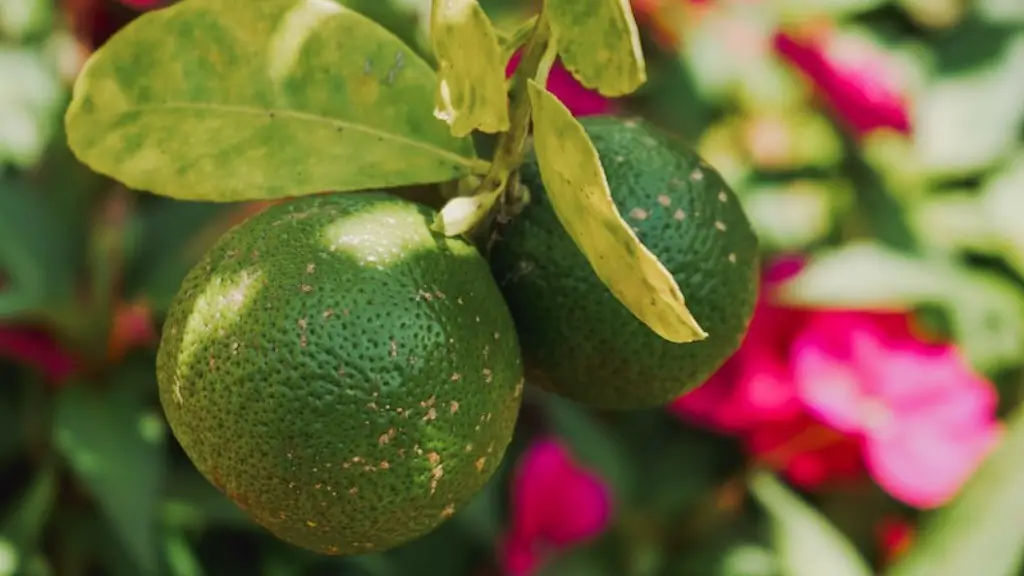If you have noticed your indoor lemon tree losing its leaves, it may be a cause for concern. Although not all leaf drop is unhealthy, too many leaves to be falling off could be an indication of a problem. Determining why your lemon tree is losing its leaves is essential for keeping it healthy for future growth and production. Here are some common reasons your indoor lemon tree is losing its leaves.
Light
A lack of adequate light or too much light can cause the leaves of a lemon tree to yellow and eventually drop off. Indoor lemon trees require a minimum of 6 hours of direct sunlight per day, but too much can be just as problematic. If your lemon tree is getting too much light, move it to a location with indirect sunlight.
Temperature
Temperature fluctuation can be another factor causing your lemon tree’s leaves to yellow and eventually fall off. Every winter, citrus trees lose their leaves due to the temperature change. If the temperature of your home drops too low, your lemon tree will most likely lose its leaves. This can be avoided by protecting your lemon tree from cold temperatures with a blanket.
Water
Under and overwatering can also cause your indoor lemon tree to lose its leaves. An insufficient amount of water can cause the leaves to become dry and brittle, resulting in them dropping off the tree. On the other hand, overwatering can cause the tree’s roots to become waterlogged and not be able to absorb nutrients. To avoid this, water your lemon tree correctly, making sure it is getting enough, but not too much water.
pests and disease
Insect pests and fungal diseases can also causes your lemon tree’s leaves to fall off. Beware of aphids, mealybugs, mites, and scale insects, as they can suck the juices from the leaves of your lemon tree, resulting in yellowing and dropping of leaves. Fungal diseases such as citric canker are also common in lemon trees and can weaken the roots and cause leaf drop. To prevent this, pay close attention to the leaves of your lemon tree and treat any infestations or fungal diseases immediately.
Fertilizer
Fertilizing your indoor lemon tree is essential for proper growth, but applying too much can also cause leaf drop. Using too much fertilizer with too high of a nitrogen content can result in leaves becoming yellow and then dropping off. Be sure to use the recommended amount of fertilizer and always use a fertilizer with a balanced ratio of nitrogen, phosphorus, and potassium.
Root Stress
Root stress can also be a cause of leaf drop in lemon trees. This can occur if the tree is in a too small of a container or is being moved around too frequently. If this is the case, repot your lemon tree into a larger container and make sure to give it adequate time to re-establish itself in its new home before moving it.
Improper Pruning
Pruning your lemon tree improperly can also cause your tree to lose its leaves. For example, the bark of the tree can be damaged when pruning, resulting in the loss of leaves. Always prune your lemon tree according to the correct pruning guidelines and make sure to use sharp clean shears for a good cut.
Old Growth
Leaf drop in a lemon tree can also be due to its cycle of growth, where it sheds old leaves to make room for new growth. As your lemon tree ages, its leaves will yellow, then fall off. This is a normal process and should not be of concern unless the leaf drop is excessive and the tree is not producing new growth.
Overfertilization
Fertilizing a lemon tree is key to its health, but too much can result in leaf burn and eventually leaf drop. Overfertilization will cause the leaves to become yellow, then brown eventually leading to the shedding of the leaves. When applying fertilizer to your lemon tree, only use the recommended amount and pay close attention to the leaves for any signs of overfertilization.
Dry Air
Indoor lemon trees thrive in a humid environment, and without enough humidity the leaves will start to suffer. Dry air can cause the leaves to become brittle and turn yellow, leading to them eventually falling off. To combat this, use a humidifier to increase the humidity of your home or mist the leaves of your lemon tree with water on a regular basis.
Nutrient Deficiencies
A lack of certain nutrients in the soil can cause a lemon tree to lose its leaves. Macronutrients such as nitrogen, phosphorus, and potassium should always be maintained in the soil. Additionally, a deficiency of micronutrients such as zinc and iron can also lead to leaf drop in a lemon tree. To prevent this, have the soil tested and make sure to use a balanced fertilizer.
Incorrect Transplants
Transplanting a lemon tree incorrectly can cause its leaves to drop off. It is important to gently remove the tree from its container when transplanting and make sure there is enough space for the roots to expand. If the roots are too tightly packed the tree will become rootbound, resulting in the leaves yellowing and eventually falling off.


